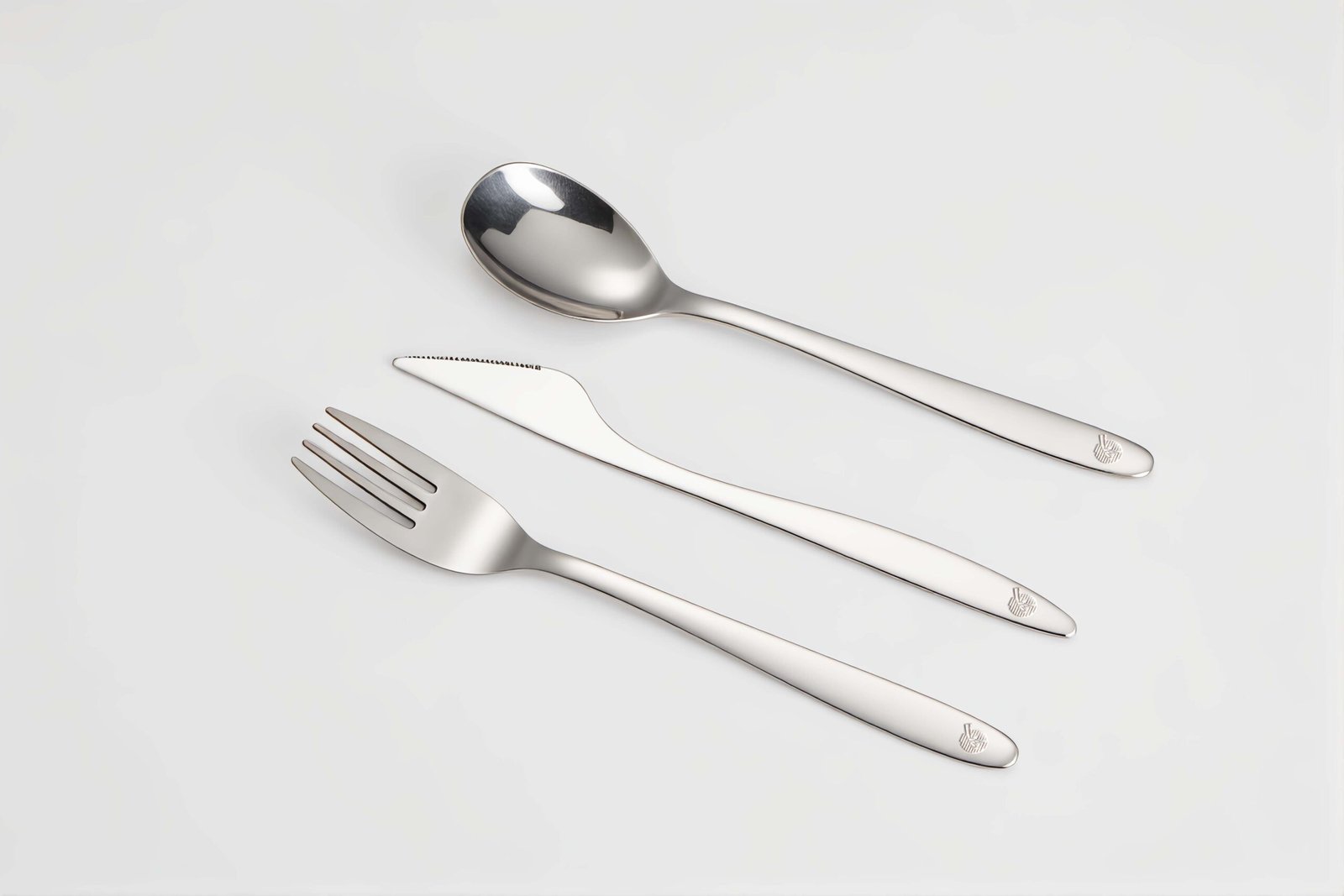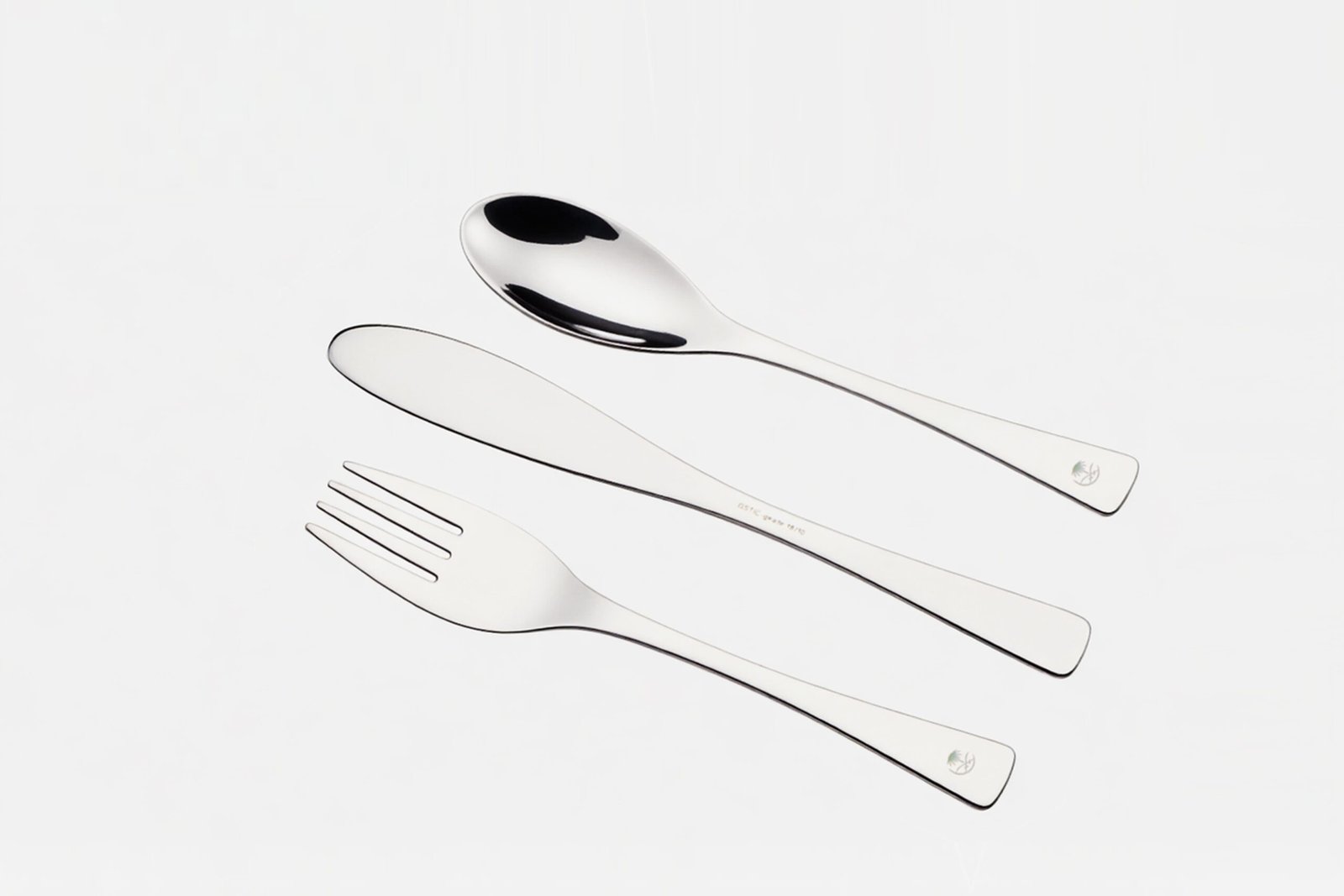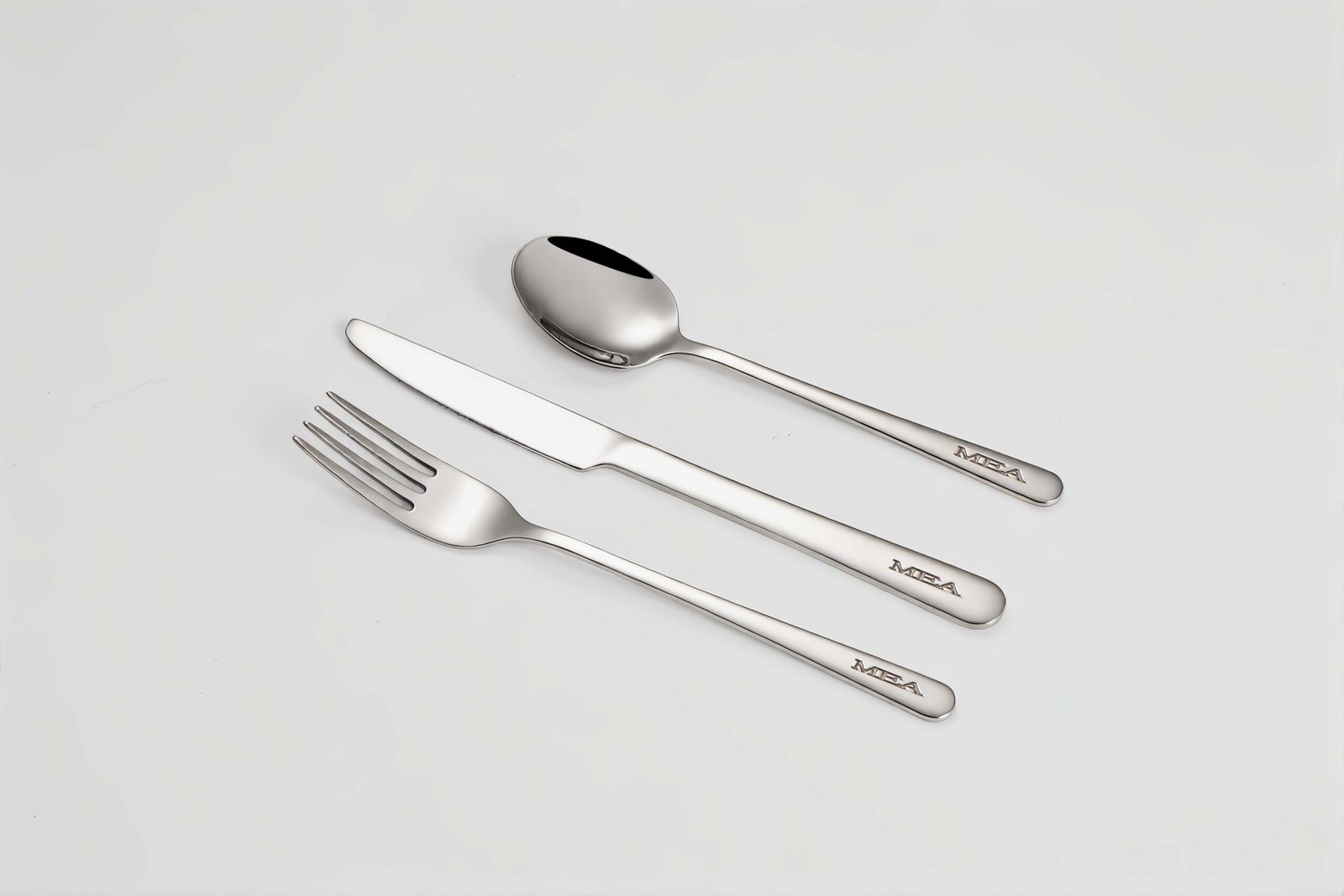When shopping for cutlery, many buyers feel stuck—too many brands, too many materials, and no idea what truly defines “good quality.”
You can find high-quality cutlery sets from trusted manufacturers who use food-grade stainless steel, offer certifications like LFGB or FDA, and allow customization in design, finish, and packaging.
Many people waste time and money trying out different cutlery brands that look beautiful but fail after a few uses. Let me walk you through what really matters in a good cutlery set. I’ll use real standards, insider knowledge from a supplier’s point of view, and simple methods to help you make the best decision—no fluff, just facts.
Table of Contents
What is the best type of cutlery to buy?
You might feel overwhelmed by the options: stainless steel, silver-plated, gold-plated, titanium-coated, even plastic-lookalikes.
The best type of cutlery to buy is food-grade stainless steel cutlery, ideally 18/10, because it offers a perfect balance between durability, resistance to rust, and elegant appearance.
Understand the Types Before You Choose
Choosing cutlery isn’t just about what looks nice. It’s about how it performs during everyday use—and over time. Here’s how different materials compare:
Material Comparison Table
| Type of Cutlery | Description | Pros | Cons |
|---|---|---|---|
| 18/10 Stainless Steel | 18% chromium, 10% nickel | Highly resistant to rust, shiny, durable | Slightly more expensive |
| 18/0 Stainless Steel | 18% chromium, 0% nickel | Magnetic, affordable | Prone to rust without care |
| Silver-plated | Base metal covered with silver | Elegant, traditional | Needs polishing, can wear off |
| Gold-plated | Base metal with gold coating | Luxurious look | Not for daily use, wears with time |
| Titanium-coated | Stainless steel with colored coating | Modern style, scratch-resistant | Color may fade with dishwasher use |
| Plastic/Resin-handled | Stainless steel with decorative handles | Colorful, affordable | Handles may loosen or break |
Look Beyond Looks
Don’t buy cutlery just because it shines on the shelf. Think about balance, grip, and maintenance. Stainless steel—especially 18/10—is the industry gold standard for quality. I always advise my clients to test weight and comfort. If it feels cheap, it probably is.
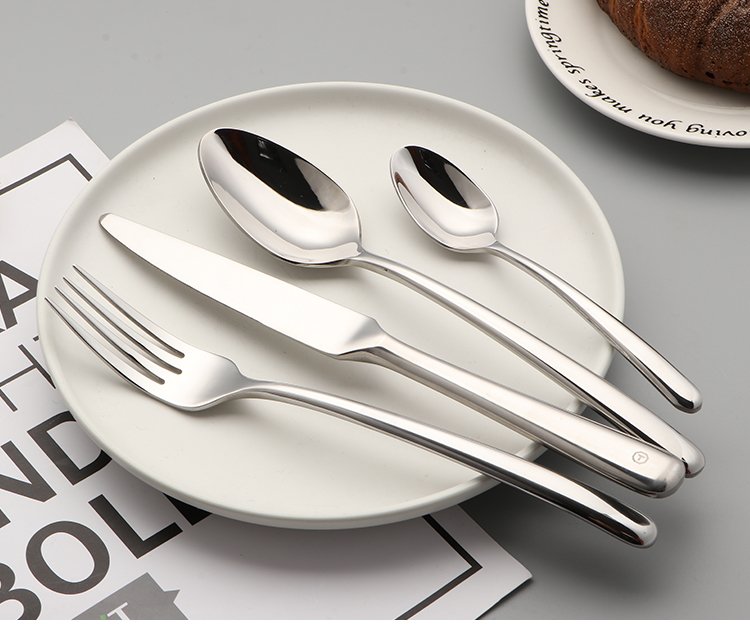
How can you tell if cutlery is good quality?
A shiny set doesn’t always mean high quality. Sometimes, it’s just polished on the outside.
You can tell cutlery is good quality by checking its weight, balance, finish, material grade (like 18/10 stainless steel), and whether it holds certifications such as LFGB, FDA, or BSCI.
The Quick 5-Point Test
Here’s how I help my clients check cutlery quality—even before bulk ordering:
Cutlery Quality Checklist
| Feature | What to Look For | Why It Matters |
|---|---|---|
| Material Grade | Check for 18/10 stainless steel | Corrosion resistance, long lifespan |
| Weight | Should feel solid but not overly heavy | Indicates density and strength |
| Balance | Head and handle should be equally weighted | Improves user experience |
| Finish | Mirror or matte—should be smooth and even | Poor finish may indicate poor mold work |
| Certifications | Look for LFGB, FDA, BSCI | Indicates safety and production standards |
A Real-Life Factory Insight
In our factory, we test spoons by holding them upside down and dropping a small marble into the bowl. If it gives a sharp ringing sound, it’s dense and forged well. A dull thud? That’s a bad sign.
Also, check the junction between the handle and the head. If it’s glued instead of welded or integrated, that cutlery will not last long.
What is the best grade of cutlery?
People often confuse numbers like 18/10 and 13/0, and sometimes sellers don’t explain clearly.
The best grade of cutlery is 18/10 stainless steel, which contains 18% chromium and 10% nickel. It offers excellent corrosion resistance and a lasting shine.
Understand the Number Game
Stainless steel grades are not just numbers—they tell you what’s inside the metal.
Stainless Steel Grade Table
| Grade | Chromium % | Nickel % | Features | Common Uses |
|---|---|---|---|---|
| 18/10 | 18% | 10% | Excellent corrosion resistance, shiny | Premium cutlery sets |
| 18/8 | 18% | 8% | Still very good quality | Mid-range cutlery |
| 18/0 | 18% | 0% | No nickel, rusts faster | Budget flatware, school canteens |
| 13/0 | 13% | 0% | Hard but less corrosion-resistant | Knives for durability |
Why Nickel Matters
Nickel enhances shine and resistance. Some markets, like Germany, prefer low-nickel options for allergy concerns, but most premium sets still include nickel.
If you’re designing for the EU market, double-check requirements. For clients in France or Italy, 18/10 is the sweet spot. For those in Turkey or India, 18/0 might be better for budget lines.
What is the difference between flatware and cutlery set?
Even experienced buyers confuse these terms, especially when working with international suppliers.
Flatware usually refers to forks, knives, and spoons as a category, often in the U.S., while “cutlery” is the broader term used globally that includes cutting instruments.
A Simple Way to Remember
If you’re in North America, “flatware” is common. In Europe, “cutlery” is more frequently used. But when sourcing, what matters is the composition of the set.
Cutlery vs Flatware Comparison Table
| Feature | Flatware | Cutlery |
|---|---|---|
| Origin of Term | Common in North America | Common in UK, EU, Asia |
| Includes | Forks, spoons, knives | Also includes peelers, steak knives |
| Purpose | Dining | Dining and sometimes prep work |
| Packaging Styles | Usually per place setting (5pcs) | Can be custom sets (7pcs, 16pcs, etc.) |
Use This in Real Negotiations
When negotiating with clients like Lisa from Turkey, I clarify this early. Some buyers think “cutlery” includes kitchen tools like ladles, while others expect only eating utensils. Always ask for a set breakdown to avoid confusion.
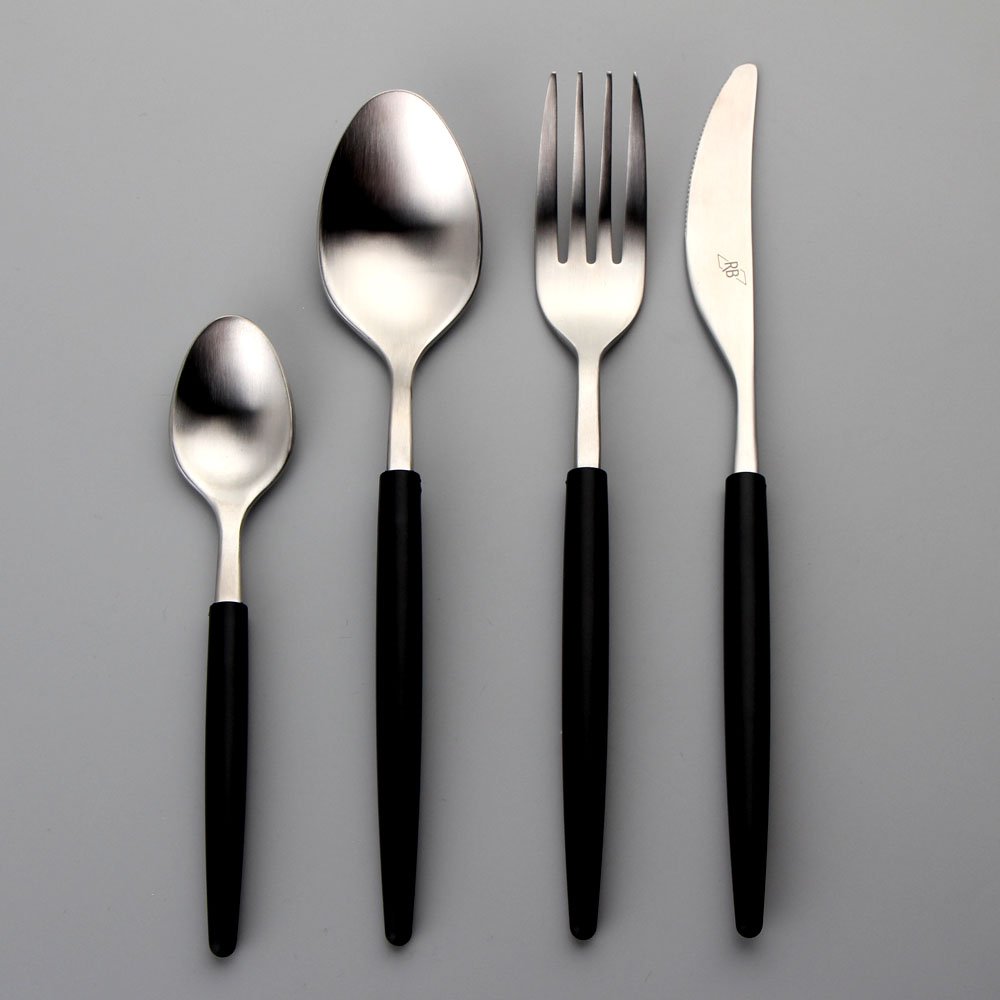
What is a good cutlery set brand?
There are hundreds of brands. Some have marketing power; others offer true quality from OEM factories like ours.
A good cutlery set brand consistently delivers on material quality, design, durability, and after-sales support—whether it’s global like Zwilling or reliable OEMs like us (Brilliant).
Branded vs OEM
Some brands are household names. Others, like us, provide the backbone behind those brands. Here’s a breakdown:
Popular Brand Examples
| Brand | Origin | Strengths | Notes |
|---|---|---|---|
| Zwilling | Germany | Design, forged knives | High-end market |
| Viners | UK | Elegant and accessible | Mid-range pricing |
| IKEA | Sweden | Functional and affordable | Mass market |
| Brilliant | China | Custom design, OEM strength | Flexible for B2B clients |
| Amefa | Netherlands | Hotel-level quality | Good for hospitality |
What I Recommend
If you’re a business like Jacky’s in Germany, I suggest going directly to manufacturers like us who support OEM and white-label branding. You get better pricing, full control over design, and scalable quality management.
Is expensive cutlery worth it?
Some buyers hesitate to invest more in cutlery. It’s just a spoon, right?
Yes, expensive cutlery is worth it if it uses premium materials like 18/10 stainless steel, offers design customization, and lasts for years without rust or breakage.
Price vs Value
Cutlery prices vary from $1 to $100 per piece. Here’s what you’re really paying for:
Price Bracket Comparison Table
| Price per Set | What You Get | Best For |
|---|---|---|
| $5–$10 | 18/0 steel, thin, basic polish | Entry-level, mass retail |
| $11–$20 | Better finish, thicker gauge | Mid-market, restaurant use |
| $21–$50 | 18/10, mirror polish, good packaging | Gifts, wedding sets, premium hotels |
| $51+ | Designer lines, hand-forged, plating | Luxury retail, brand positioning |
Think Long-Term
Cutlery is not something we replace often. A durable set reduces complaints, refunds, and replacement cycles. I always tell B2B clients: spend a bit more up front, and your end customers will thank you for years.
What is the difference between flatware and cutlery set?
Many people think flatware and cutlery mean the same thing, but actually, they are not exactly the same.
Flatware usually refers to forks, knives, and spoons used for eating, while cutlery may also include serving utensils and knives for food preparation.
Understand the Functional Difference
This confusion often leads to miscommunication between buyers and suppliers. As a Chinese cutlery manufacturer, I always clarify this with my overseas clients before quoting or sampling.
Flatware vs Cutlery Table
| Term | Common Items Included | Region Used More Often | Special Notes |
|---|---|---|---|
| Cutlery | Forks, knives, spoons, and more | UK, Asia | Can include kitchen knives and specialty tools |
| Flatware | Only table forks, knives, spoons | US, Canada | Doesn’t include serving or cooking tools |
Why It Matters in Sourcing
When you’re sourcing from China, you should clarify the definition with your supplier. For example, when Lisa from Turkey first contacted me, she asked for a “cutlery set” but meant only table use forks and spoons—no steak knives or serving spoons.
In Brilliant, we offer both flatware and cutlery sets in all configurations: 4-piece, 16-piece, 24-piece, or full 72-piece sets. We even offer personalized packaging and custom color handles to match different brand styles.
We help our customers avoid miscommunication by preparing detailed spec sheets and photos before production. It saves time and builds long-term trust.

What is a good cutlery set brand?
When browsing Amazon or Alibaba, you’re bombarded with dozens of brands—some you’ve never heard of.
A good cutlery set brand combines durable materials, consistent quality control, strong OEM capabilities, and responsive after-sales support.
Brand vs. Manufacturer
Some brands are well-known in retail but don’t actually manufacture their products. Others, like us at Brilliant, are manufacturers first. That means we control the raw material sourcing, design, production, polishing, packaging, and inspection.
Here’s what to look for when choosing a cutlery supplier brand:
Good Cutlery Brand Checklist
| Brand Attribute | What to Look For | Why It’s Important |
|---|---|---|
| In-house Production | Can they produce molds and tools themselves? | Ensures quality and design flexibility |
| Certification | LFGB, FDA, BSCI, ISO | Required for export and food safety |
| Product Range | Spoons, forks, knives, ladles, specialty items | One-stop sourcing |
| Customization Support | Can they print logos, change packaging, etc.? | Important for brand identity |
| Service & Communication | Fast, clear, multilingual | Saves time and avoids costly mistakes |
Our Story in Global Branding
We’ve helped over 1000 brands from Europe, the Middle East, and South America build their private label cutlery. Some started with just 200 sets. We guided them through the mold-making process, created matching packaging, and now they’re returning clients with yearly container orders.
In our opinion, a good brand isn’t the one with the most ads—it’s the one with consistency. And we aim to be that reliable name behind your logo.
Is expensive cutlery worth it?
It’s tempting to go for cheaper options, especially when buying large quantities. But that cheap price can cost more in the long run.
Expensive cutlery is worth it when it offers better material, lasting durability, and saves replacement costs over time.
Total Cost of Ownership
Let me explain with an example. One of our clients from Germany bought an 18/0 stainless steel spoon set at 0.35 USD/piece. After 6 months, 20% of them showed rust spots. Complaints rolled in, and they had to recall several cartons.
They later switched to our 18/10 stainless steel model, which cost 0.58 USD/piece. The returns dropped to zero, and they’ve used the same supplier (us) ever since.
Expense vs Value Table
| Cutlery Type | Initial Cost | Lifespan | Replacement Rate | Total Cost (5 years) |
|---|---|---|---|---|
| Cheap (18/0) | $0.35 | 6-12 months | High | $1.75 – $2.10 |
| Mid-range (18/8) | $0.45 | 2-3 years | Medium | $0.90 – $1.35 |
| High-end (18/10) | $0.58 | 5+ years | Very low | $0.58 |
What We Recommend
In Brilliant, we always suggest starting from your market. For budget supermarkets in Southeast Asia, 18/0 works fine. But for branding in Germany, UAE, or South Korea, investing in 18/10 gives better margins and happier customers.
Quality doesn’t lie. It either breaks—or it doesn’t.
High-quality cutlery sets are not just about looks—they’re about lasting value, good design, and trusted sourcing.




